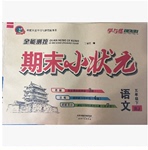题目内容
The woman burst into tears ________she was announced the winner.
A. that B. instantly
C. unless D. in case
练习册系列答案
 全能测控期末小状元系列答案
全能测控期末小状元系列答案
相关题目
题目内容
The woman burst into tears ________she was announced the winner.
A. that B. instantly
C. unless D. in case
 全能测控期末小状元系列答案
全能测控期末小状元系列答案